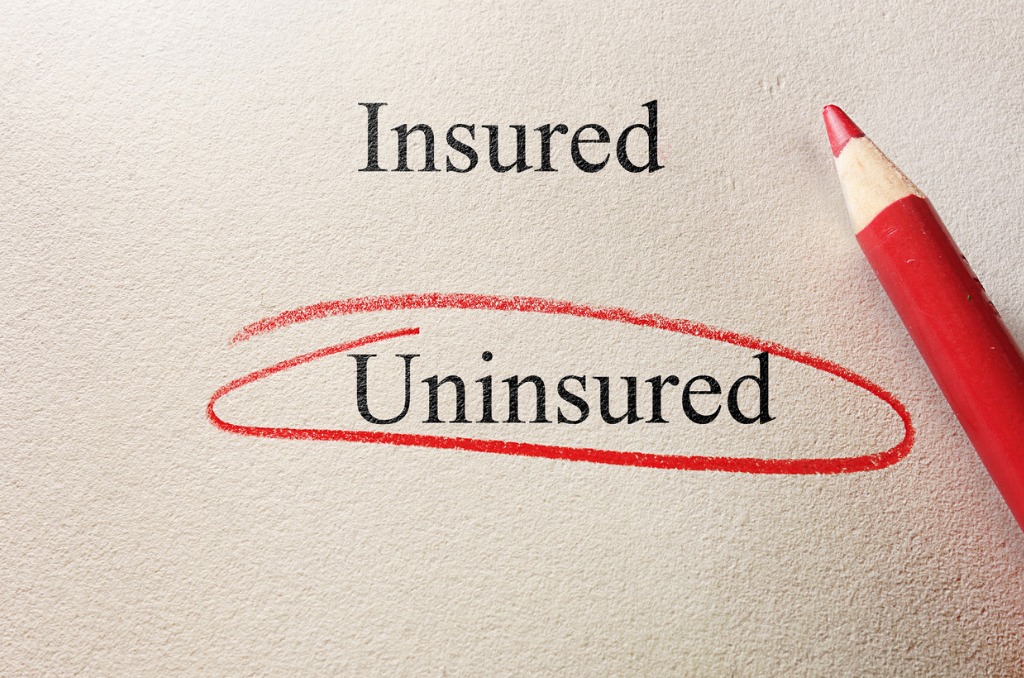An Uninsured Driver Hit Me in BC! What Should I Do?
It all happens so fast when a car accident takes place. There are so many things to worry about. Is anyone injured? Is there damage to the car? Among all these details, the last thing you might expect to be dealing with is an uninsured driver. If the accident happens in BC, there are some important laws to be aware of.
In Section 20 of the Insurance (Vehicle) Act, “uninsured motorist” is defined as someone who uses a motor vehicle without third party liability coverage “in a prescribed amount, not less than $100,000”. The term uninsured driver is also commonly used, by non-lawyers or those not affiliated with ICBC. The current minimum mandatory third party liability limits in BC is $200,000. Third party liability is coverage you carry to provide protection to someone you may injure when you are operating your vehicle.
Section 20(2) of the Insurance (Vehicle) Act provides the authority for an injured person to apply to ICBC for payment of damages for the losses they suffer in an action against an uninsured motorist. Section 20(9) states ICBC “may” pay all of part of a settlement or judgment regarding an uninsured motorist.
A person may claim pursuant to s. 20 if all of the following conditions are met:
- The claimant sustained injury or loss caused by or arising out of the use or operation of a motor vehicle on a highway in British Columbia;
- The person using, operating, or owning the offending motor vehicle is not insured under a certificate of insurance issued by ICBC or other motor vehicle liability police provides minimum indemnity coverage of $100,000;
- The claimant is not entitled to bring an action under s. 24 in respect of an unidentified motorist (this means you can identify the offending motorist and vehicle);
- The owner of the offending motor vehicle has not filed proof of financial responsibility pursuant to ss. 106 to 113 of the Motor Vehicle Act, R.S.B.C. 1006, c. 318; (this applies to out of province insurance companies but rarely comes up);
- The offending motor vehicle is not owned by the Crown in right of any other province or Canada, or by an agent of the Crown; and
- There is no other motorist who is liable for all or part of the claimant’s damages and is insured in respect to those damages, unless ICBC waives this requirement.
If a claimant alleges they suffered an injury caused by an uninsured driver, ICBC bears the onus of proving the offending driver not uninsured. In other words, ICBC must prove the offending driver actually has insurance coverage. However, taking on the defence of a lawsuit against an uninsured driver under the provisions of s. 20 does not amount to an admission by ICBC that the defendant is an uninsured driver.
Section 105 of the Regulation limits the total liability of ICBC to $200,000 for all claims under s. 20 of the Insurance (Vehicle) Act that arise out of the same accident. This includes claims for pre-judgment interest, post-judgment interest, and any costs that may be awarded to the successful party in the lawsuit. What this means is if more than one person is injured in the collision involving the uninsured motorist they must share in the $200,000. When it comes to dividing this amount, it is necessary to prove the value of each claim individually. If the total value of all the claims comes to less than the $200,000 in coverage, then everyone will be paid out on the proven value of their claims for the losses they suffered in the collision. If, on the other hand, the total value of the proven claims exceeds the $200,000 in coverage then the claims will be divided between the claimants on a pro rata basis. For example, if there were three proven claims, the first one was for $50,000, the second one was for $150,000 and third one was for $200,000. The likely result would be as follows:
- The proven claim of $50,000 would result in a payout of $25,000.
- The proven claim of $150,000 would result in a payout of $75,000.
- The proven claim of $200,000 would result in a payout of $100,000.
When there are multiple claimants injured in the same collision as in this example, one law firm cannot represent all three claimants, because each claimant is competing for the same pot of money. Lawyers cannot represent more than one party when there are competing interests. It is always a good idea to get sound legal advice as soon as possible when you are in a collision, so you understand your rights, so you can make informed decisions about your future.
Know Your Rights
At Lambert Law, we recommend seeking legal advice before speaking with ICBC, so we can help guide you and protect you rights when you are involved in a motor vehicle collision. If you would like to learn more about your rights, we would be pleased to meet with you and answer your questions. Contact us for a free, no obligation consultation.
Note to Reader:
This blog post is made available by the lawyer or law firm publisher for educational purposes only to provide general information and understanding of the law, not to provide specific legal advice. By using this blog, you understand that there is no client lawyer relationship between you and the blog publisher. The blog should not be used as a substitute for competent legal advice from a licensed lawyer.

